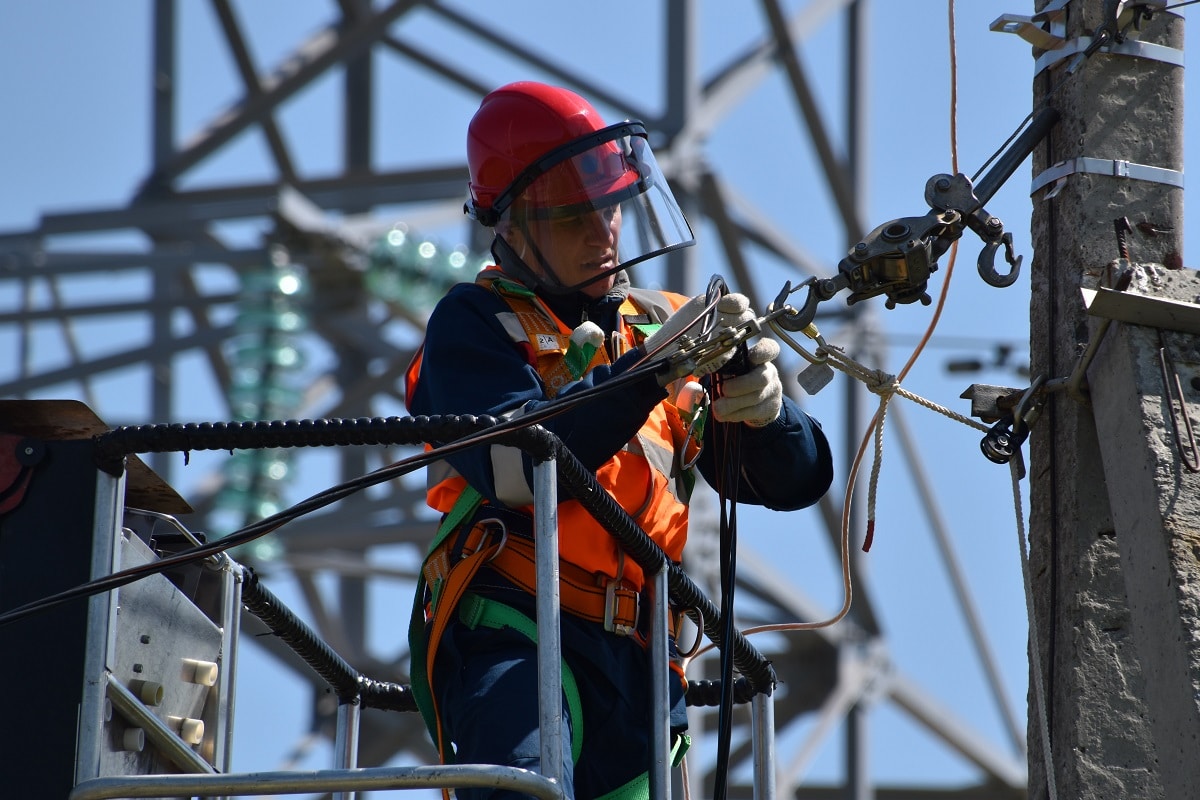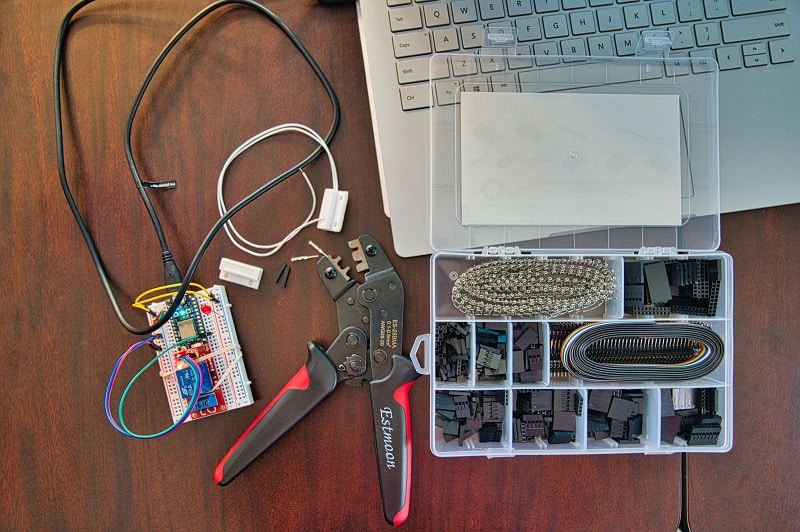
How To Become an Electrician? – A Helpful Career Guide
There has been a shortage of electricians. Together with the fact that people will always use electricity, this means that electricians are in demand. In fact, being an electrician is one of the top ten most in-demand jobs at the moment.
In this guide, we will explain the steps you need to take to become an electrician as well as tell you more about the IBEW Aptitude Test, which you will have to undergo.
Table of Contents
What Do Electricians Do?
An electrician is a skilled craftsman who repairs and maintains electrical systems. This can be in homes, commercial buildings, and structures where they work on electrical wiring. Every building requires proper electrical wiring for safety reasons and to prevent potential risks associated with wrong wiring and components.
A poor wiring system can malfunction, becoming hazardous for those staying in the building, or cause a fire. As an electrician, one has to know safety measures, have maths and mechanical skills, and understand how electrical tools and materials work.
What Skills Are Needed?
For those considering a career as an electrician, several skills are needed to ensure that the job is well done for people’s safety. To become an electrician, you will need to train for at least four years in an apprenticeship. This is the first level for electricians before going to the higher levels, which are journeyman and master electrician.
An apprentice electrician has an apprentice license and works under the supervision of an experienced electrician permitted to work on electrical components. One good thing about having the skills of an electrician is that people will always need power since electricity is a basic commodity. This means electricians are always in demand.
To be an electrician, you need:
- A basic understanding of maths, especially algebra. You will need to brush up on your algebra skills and learn more about how algebra is applied on the job.
- Good problem-solving skills, ability to be quick to act, and good communication skills daily when working.
- To work on your balance and refine your motor skills. You will be climbing ladders and having to balance yourself in high places.
- To understand that being an electrician requires moving into uncomfortable spaces to ensure that the job is done. You might have to crawl through tight spaces, dig trenches and climb ladders when doing installations. On most days, you will mostly need to be on your feet, so a basic level of fitness is required.
How to Become An Electrician
Decide On Your Training Path
If you’re considering getting the necessary skills to become an electrician, you need to undergo the right training. There are three main options to choose from and obtain the necessary skills and qualifications. You can either start an apprenticeship (with NVQ or SVQ qualification), study for a diploma or technical certificate, or take a domestic installer course.
Once you fit the eligibility criteria to study to become an electrician, you have several options. You can choose to specialize in a particular field. Depending on the field you choose, the training can take you a couple of weeks to years to qualify as an electrician.
If you are interested in qualifying as a domestic installer, it’ll only take a few weeks. To work as a fully qualified electrician, you’ll need to spend years learning the necessary skills combined with work experience and proper NVQ qualifications.
For an apprentice qualification, you’ll have to do both of these concurrently, which takes between two and four years to complete.
How To Become a Fully Qualified Electrician
Most people aiming to qualify as electricians start with an apprenticeship, which is the most popular pathway to fully qualifying as an electrician. According to research, around half of current school leavers go for an apprenticeship over further education. This is seen as a fast track to a successful electrical career.
If you get the chance to secure a role as an apprentice electrician, you’ll be able to work while studying for a Level 3 course & NVQ qualifications for apprentices. This allows you to get the qualifications, theoretical knowledge, and job experience while working under a more experienced electrician needed to be considered a fully qualified electrician.
The NVQ course comprises a wide range of units covering different topics. These include electrical principles, inspection testing, and health and safety to wiring installation.
Once you are through with classroom and workshop levels, you’ll have the City & Guilds qualification. This puts you in a position as a qualified electrician. You can opt to be assessed at work before taking an AM2 exam at a local center.
What Is the IBEW Aptitude Test?
The IBEW Aptitude test qualifies you to become a certified technician and a licensed electrician. It is approved by both the IBEW and NECA electrical apprenticeship programs.
You will be expected to answer 69 questions that revolve around Maths (algebra and functions) and Reading Comprehension. Take note that the minimum passing score is 4/9.
How to Pass the IBEW Aptitude Test?
It is important to ensure you have a strong math foundation to do mathematical calculations accurately and quickly since you can’t use a calculator. Many candidates aren’t very familiar with basic numeracy anymore, so be sure to refresh your memory.
For example, ensure that you know how to answer questions with fractions, the four mathematical operations, and so on.
Prepare for the reading section the same way you would the others. Many candidates make the mistake of only focusing on math topics and neglecting the reading comprehension component because it does not seem as challenging.
However, bear in mind that the Electrical Aptitude Test’s reading component is responsible for half your entire score. Put in the time and effort to prepare for it adequately.
Give yourself enough time to prepare for the test. Often, you have 1 to 6 months time to prepare for the test, so don’t leave it to the last minute. Do elaborate practice on each topic and try to speed up how quickly you can perform basic calculations.
The best way to prepare for the IBEW Aptitude Test is to undergo simulation tests, so you will know what exactly you will be faced with. Job Test Prep has the best practice tests; you get 27 math and reading comprehension practice tests to help you really understand what you need to know.
They also include 18 extra practice tests along with 3 IBEW simulation tests that will all put you in the best position to thrive and do well for the actual test.
Conclusion
To become an electrician, you have to take the IBEW Aptitude Test. With ample practice using Job Test Prep’s practice tests, you will be able to familiarise yourself with the actual test and know exactly what is needed to do well. Set aside adequate time to go through tests and read the guide you will be well positioned to excel in your IBEW Aptitude Test.
Sarah is an accomplished educator, researcher and author in the field of testing and assessment. She has worked with various educational institutions and organisations to develop innovative evaluation methods and enhance student learning. Sarah has published numerous articles and books on assessment and learning. Her passion for promoting equity and fairness in the education system fuels her commitment to sharing insights and best practices with educators and policymakers around the world.






